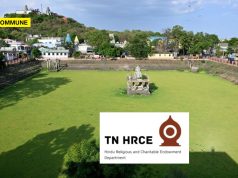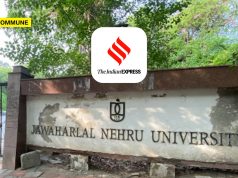
The Minority Welfare Minister, Senji Mastan, unveiled ten new initiatives during the recent Legislative Assembly session, which commenced on 20 June 2024. These proposals, presented on 25 June 2024 during the debate on the Minority Welfare Department’s grant request, aim to “enhance support” for minority communities:
- A plan to distribute 2,500 motorized sewing machines to women from minority groups, with an allocated budget of ₹1.6 crores.
- An increase in pension payments for registered members of the Ulama and Staff Welfare Board, raising the amount from ₹1,000 to ₹1,200. Additionally, the eyewear allowance will be increased from ₹500 to ₹750 rupees.
- A boost in stipends for registered members of the Christian church preachers and staff welfare board. This includes a new educational stipend of ₹1,000 for students in grades 6-9 from members’ families.
- The development of a dedicated software and web portal by the Tamil Nadu e-Governance Agency to streamline welfare assistance distribution for both the Ulama and Staff Welfare Board and the Christian church workers’ welfare boards. This project has a budget of ₹25 lakhs.
- Construction of a dedicated building for the minority welfare college student hostel in Cuddalore district, with a budget of ₹3.96 crores.
- Establishment of a new minority welfare college student hostel in Pudukottai district, designed to accommodate 100 students, with an allocation of ₹56 lakhs.
- Creation of additional Muslim Women’s Aid Societies in eight districts (Tirupur, Tiruvallur, Vellore, Dindigul, Thanjavur, Chengalpattu, Madurai, and Erode) and new Christian Women’s Aid Societies in two districts (Tiruvallur and Sivagangai). This initiative has a budget of ₹10 lakhs.
- Allocation of ₹5 crores to improve facilities at six historically significant dargahs that attract numerous visitors.
- A fund of ₹1 crore dedicated to the assessment and measurement of Waqf properties.
Interestingly, along with these initiatives, the Tamil Nadu government has also announced a subsidy of ₹25,000 for first-time Haj pilgrims, despite a Supreme Court ruling and subsequent actions to eliminate such subsidies. The Supreme Court of India, in its 2012 verdict, ordered that the Haj subsidy must end by 2022, deeming it unconstitutional and inconsistent with the teachings of the Quran. Following this ruling, the central government ceased giving Haj subsidies in 2017.
However, the Tamil Nadu government has continued to provide financial aid for Haj pilgrims, recently enhancing the subsidy amount. This decision has sparked criticism, particularly from those who argue that taxpayer money should not be used for funding religious pilgrimages. Critics point out that while the Hindu Religious and Charitable Endowments (HR&CE) department earns revenue from Hindu temples through special darshan and Archana tickets, Hindus receive no similar subsidies for their pilgrimages.
Critics argue that the state’s allocation of taxpayer funds for Haj subsidies while neglecting Hindu pilgrimages, highlights a disparity. They also accuse the HR&CE department of exploiting temple revenues for government coffers rather than supporting the Hindu community’s religious activities.
யாரு அப்பன் வீட்டு பணத்தை யார் வாரி இறைப்பது?#HajjYatra #Hajj #GingeeMasthan #TNAssembly #TamilNews pic.twitter.com/gfXhvTtLTp
— Hindu Munnani (@hindumunnani_tn) June 26, 2024
(with inputs from ETV Bharat)
Subscribe to our channels on Telegram, WhatsApp, and Instagram and get the best stories of the day delivered to you personally.




